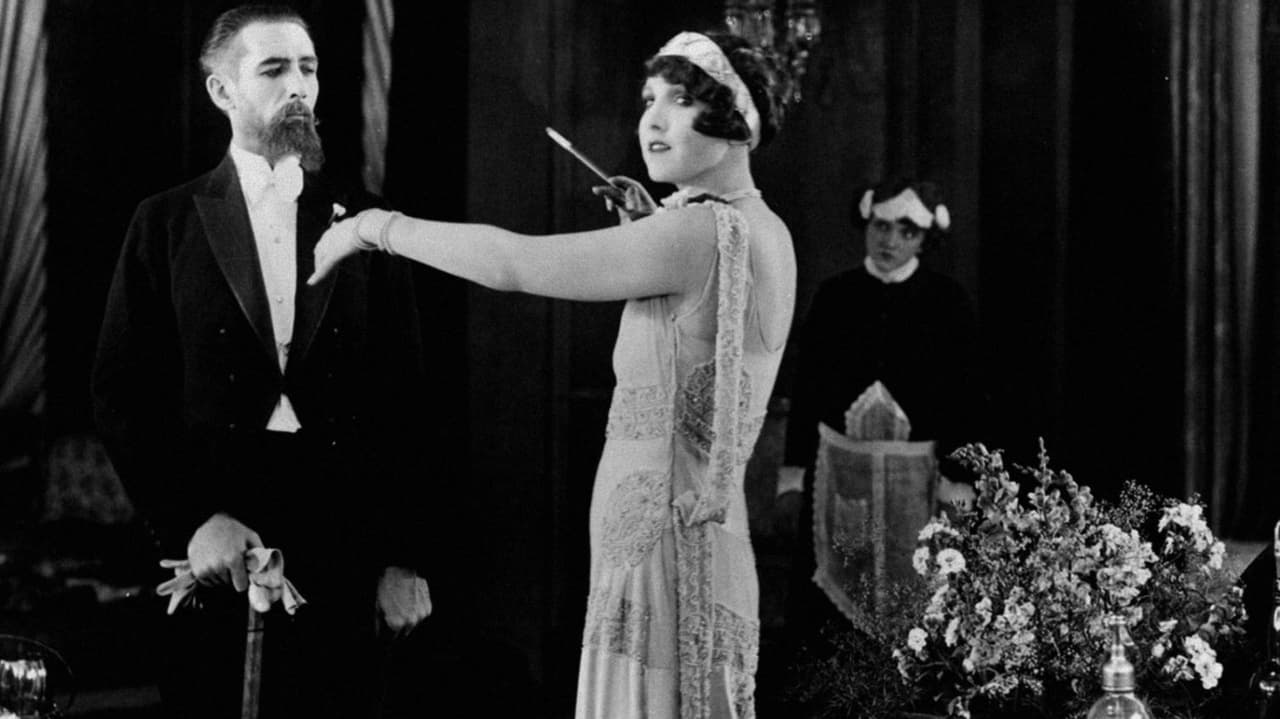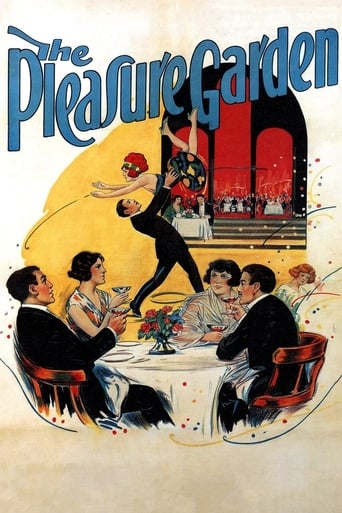



Very well executed
Great visuals, story delivers no surprises
It's the kind of movie you'll want to see a second time with someone who hasn't seen it yet, to remember what it was like to watch it for the first time.
View MoreI enjoyed watching this film and would recommend other to give it a try , (as I am) but this movie, although enjoyable to watch due to the better than average acting fails to add anything new to its storyline that is all too familiar to these types of movies.
View More"The Pleasure Garden" is a British/German co-production from 90 years ago and the only reason why this film is still somewhat known today I guess is because the man behind the camera was Mr. Alfred Hitchcock, in his mid-20s, with one of his earliest filmmaking efforts. He still had a long way to go to his best achievements, however. But as he was not the writer here, you cannot really blame him. The story wasn't particularly interesting. The best thing about the film was maybe the cute dog. Too bad he did not even appears in 5 scenes, even if he had the final shot. I cannot say I am familiar with anybody from the cast here, even if some of them have been prolific in film before and after this one. It is a silent (don't be fooled by the music), black-and-white film that, like so many other suffer from simply not enough intertitles to understand exactly what's going on, even if the dramatic finale was decent. Also like many other films from almost 100 years ago, this one got restored and there are several information in terms of the runtime. The version I saw was really short, barely made it beyond the 1-hour mark. Good thing though as it really wasn't a thrilling watch. Not recommended unless you're a Hitchcock completionist.
View MoreInteresting composure and camera-work, and the dog, are about all this one has going for it. Interesting, slightly voyeuristic opening shot of dancers pouring down a spiral staircase, in sepia-tinted brown. A bit of mild, subtle humour as we see a bored man among the first row of otherwise thrilled patrons at the revue. Top hat'd Hamilton smoking a cigar while standing in front of a 'Smoking Prohibited' sign. People coming home to find their dog has chewed up their clothes These bits show the director already having a sense of humour, and playing with his audience, but not yet really knowing what to do with the fairly uninvolving story present, a sort of behind-the-scenes melodrama at a revue; infidelity, and the murder at the beach house. Surprisingly dull and lackluster results, considering the way it all sounds, although the climax does have a little bit of action to it. A lot of the sets are well done, as is the director's humorous flair in filming some of them, but quite frankly, the plot is just boring and uneven. Were it not for the fact that this is one of Alfred Hitchcock's first films as director (it is his first solely-directed feature film, but third film to be released) , no one would remember, or care about, this one.
View MoreThis was Hitchcock's first ever film as director to be completed and it is indicative of his huge talent. Despite its age and therefore somewhat primitive production the young Hitch does a superb, professional and classy job. The film maintains interest throughout and is still funny, entertaining and impressive when viewed today! Hitchcock imbues it with directorial flourishes of brilliance with clever, interesting camera shots, intelligent storytelling and little bits of his psychological themes which strengthen all his films.In conclusion this is a superb film considering its age and the fact it is Hitchcock's debut.
View MoreThe Pleasure Garden is the first film that Alfred Hitchcock directed to completion. It's a nice look into the earliest directorial thoughts and techniques of the master. Even in this earliest film, we can see signs of what would become some of his signature trademarks. I enjoyed some of the point of view shots early in the film with the blurred view of the man looking through his monocle as well as the gentleman looking through the binoculars at the show girls legs. There is also a spiral staircase in the opening of this movie. Not that it was used like the staircase in Vertigo, but it made me smile thinking of how important that would be in his later film. The story deals with the idea of infidelity. Jill (Carmelita Geraghty) is an aspiring dancer who gets engaged to Hugh (John Stuart) who has to leave for work overseas. Patsy (Virginia Valli), who has helped Jill get her start, starts to worry about Jill keeping her promise to wait for Hugh. Jill's career is taking off and she begins to fool around with other guys. Patsy marries Levett (Miles Mander), Hugh's friend who also goes overseas to work with Hugh. Unlike Jill, Patsy remains true to her husband, thinking only of being with him. She receives a letter that her husband has taken ill and scrapes up the money to go be with her husband in his time of need. When she arrives, she finds that he has taken to drinking and island women. That's when the trouble ensues. I enjoyed Hitch's first film. It's a little slow starting, but picks up pace as it goes along. I liked seeing Cuddles, the dog, thrown in for a little comic relief to contrast the seriousness of the film, which of course is another of Hitchcock's trademarks. There was also a nice, subtle score by Lee Erwin, that fit the film well.*** (Out of 4)
View More